Girl Can’t Help It, The (1956)
“I’m telling you I stink, stink, stink!”
|
Synopsis: |
|
Genres, Themes, Actors, and Directors:
Response to Peary’s Review: then later leans “over with her half-exposed breasts close to Ewell’s eyes and ask[s] if he thinks she’s ‘equipped’ to be a mother”. Indeed, Tashlin — a former animator — “uses” Mansfield’s body so strategically (she’s “barely able to walk” in her “tight sweaters and tight skirts”) that “she looks more like a caricature of the ‘fantasy blonde bosom-beauty of the fifties’ than a real woman”. However, as Peary notes, “Mansfield is so spirited, lively, and funny that she emerges unscathed”, and somehow manages to “blunt the sexist humor and make it harmless, [so] we don’t feel guilt”. Mansfield and her bosoms aren’t the only fetish exploited and explored by Tashlin, however: as DVD Savant has hinted, the entire film could be viewed as an extended satirical deconstruction of the fifties, given Mansfield’s not-so-secret desire to simply be a housewife rather than pursuing a career (“I’m a domestic”, she guiltily admits), and the strategic inclusion of rock-n-roll throughout the entire narrative. To that end, Peary points out that the “picture has a strong cult today because of the many great rock acts who appear, including Little Richard at his peak” (singing the title song), “Fats Domino, Gene Vincent, and Eddie Cochran”, among others. (My favorite musical act, however, is that given by the apparition of Julie London, in which she sings the haunting “Cry Me a River” in various locations of Ewell’s apartment while he tries in vain to get her out of his mind; it’s a classic, cleverly conceived comedic sequence.) Redeeming Qualities and Moments: Must See? Categories
Links: |
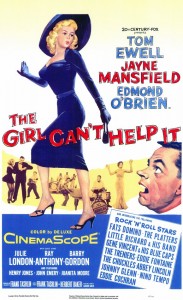
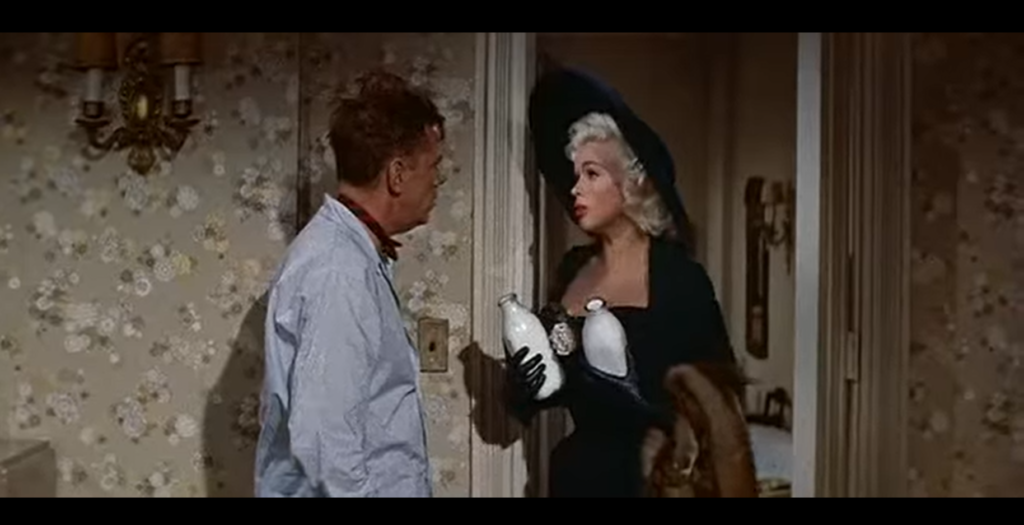
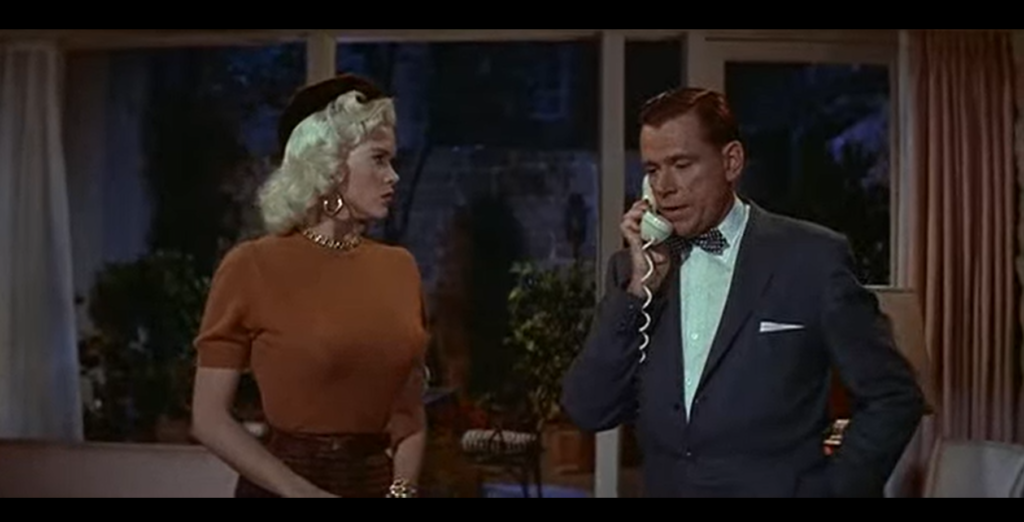
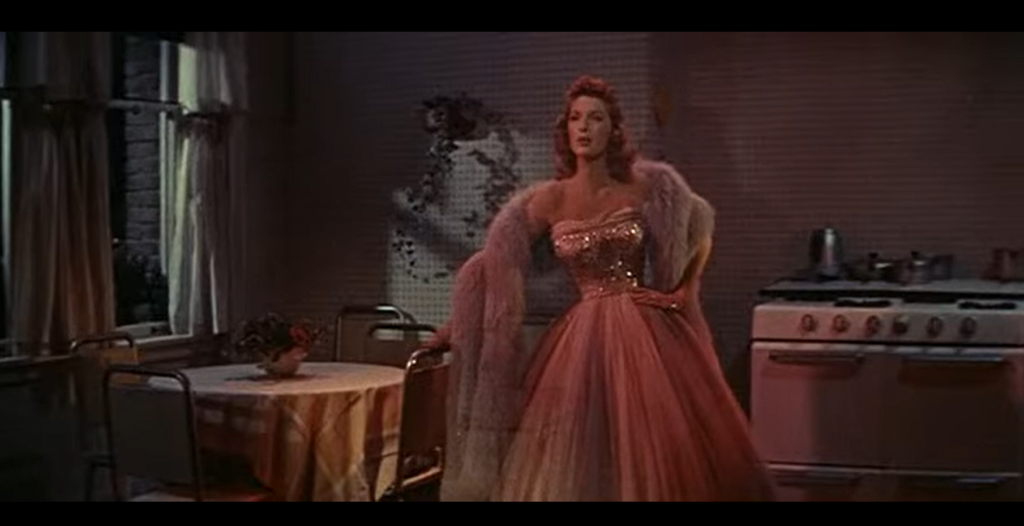
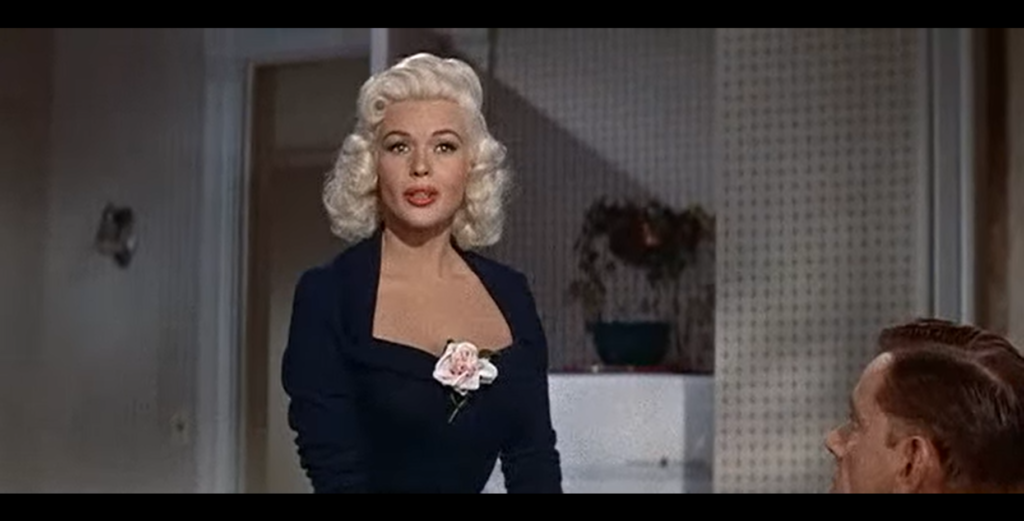
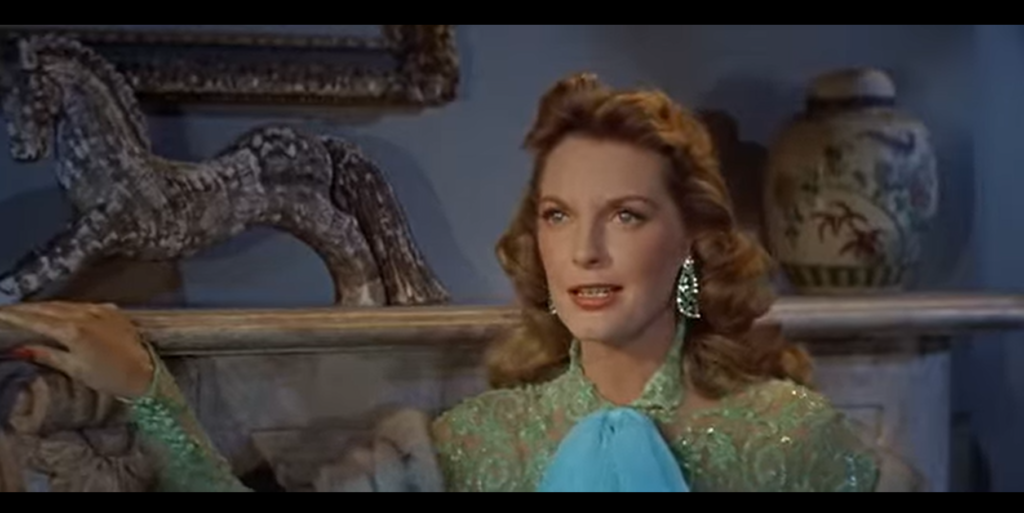
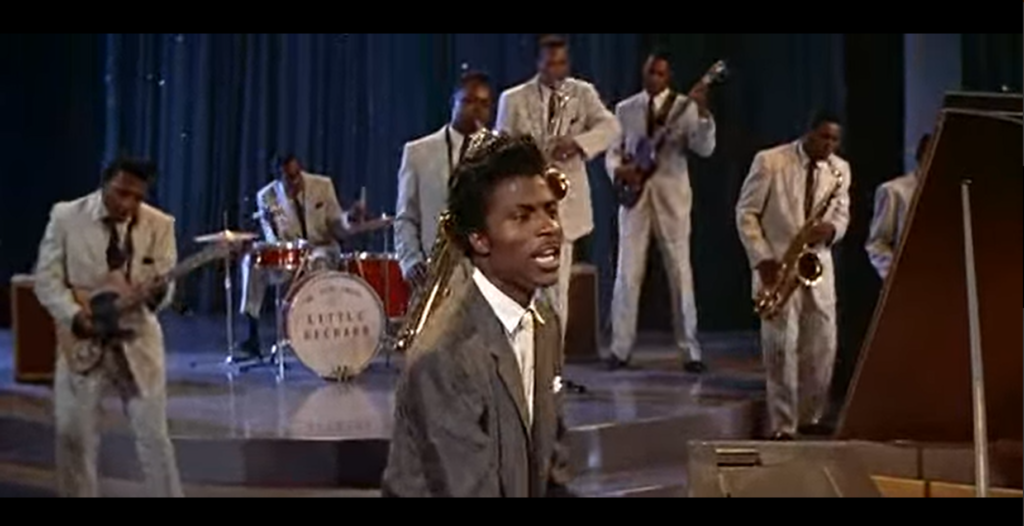
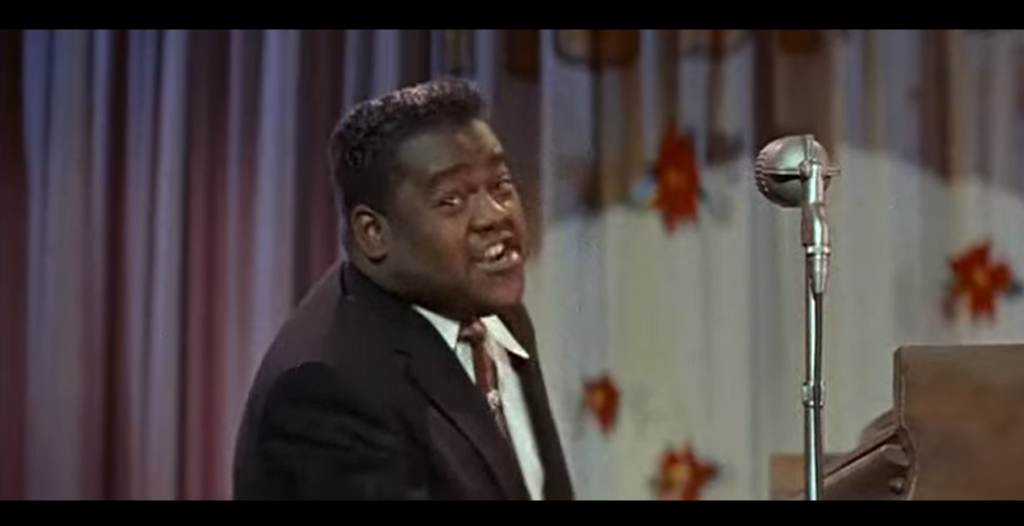
One thought on “Girl Can’t Help It, The (1956)”
A must as a comic gem!
The DVD release of ‘TGCHI’ contains the A&E bio, ‘Blonde Ambition’. Overall, a sad (though recommended) overview of the odd life and career of Jayne Mansfield. Seems the poor thing never stood much of a chance, really. And, basically, she made one good film – it’s impossible to imagine anyone else as Jerri Jordan. All of the elements necessary for cinematic effervescence simply met and melded at the crossroads for ‘Girl…’, with JM as the decided linchpin. However, one wonders, if it weren’t for this film, would JM be pretty much forgotten today?
As well, Tashlin here delivered the best work of his feature-film career; sadly, nothing else of his is really in the same league. This is one funny, deeply satisfying flick! Not only is it visually striking (with renowned DP Leon Shamroy in top form), but Tashlin shows marvelous attention to detail, all adding to a delightful payoff.
The film shrewdly starts with a semi-refined, introductory speech which Ewell delivers to the audience. The speech serves the purpose of laying out the idea that the film we’re about to see is, first and foremost, a respectful goodbye to the past and a big, fat hello to what’s new. That becomes clear as the title song pushes its way in (hilariously leaving Ewell mute and usurped, though he continues talking as if unaware he’s been ushered out by the invasion of rock-n-roll). The opening credit sequence is among my cinema history favorites: check out those wild, dual-tints mixed with shadows – and the intricate dance moves of the free-wheeling dancers are simply a knockout!
The script is simplicity itself and marvelously constructed. Though essentially fizzy and flimsy material, Tashlin and co-writer Herbert Baker (who would go on to write some Elvis Presley movies, as well as – perhaps not so bizarrely – ‘Sextette’!, etc.) pepper generously at every turn, with the ongoing result being nothing but infectious from start to finish.
A concoction of this sort demands highly skilled performers. Ewell is fine doing what he does best – he’s especially effective with his reactions in the Julie London fantasy sequence (which, indeed, is my favorite bit in the film as well; it really is a standout and JL is deliciously sultry!). Little Barry Gordon is incredibly sweet as the paperboy. (Having been told that JM is “just a girl”, BG responds with, “If that’s a ‘girl’, then I don’t know what my sister is!”) Even Juanita Moore gets to shine as the maid Hilda – when she’s watching tv and a Presley ‘double’ is singing…watch her swing! (Apparently Presley would have done the song himself if his agent hadn’t demanded so much money. Wouldn’t *that* have been a fun spot!) But the real pros here are O’Brien as ‘Fats’ (formerly ‘Slim’) Murdock and Henry Jones as his sidekick Mousie. (Interestingly, the same year, O’Brien starred in ‘1984’ and Jones memorably appeared in ‘The Bad Seed’ as caretaker Leroy – talk about great character actors!) To varying degrees, Tashlin encouraged his cast to go for extremes – and perhaps no one is more extreme than Mansfield. What it must have taken to get this performance out of her (if you see her in any number of other films, she simply can’t act at all!) – Mansfield comes off with a character as full-bodied as her full body! Amazing.
I’m more than a little fond of this film. This is a genuine comedy classic!
[NOTE: John Waters effectively uses this film’s title song as Divine’s character in Pink Flamingos is seen walking in downtown Baltimore.]